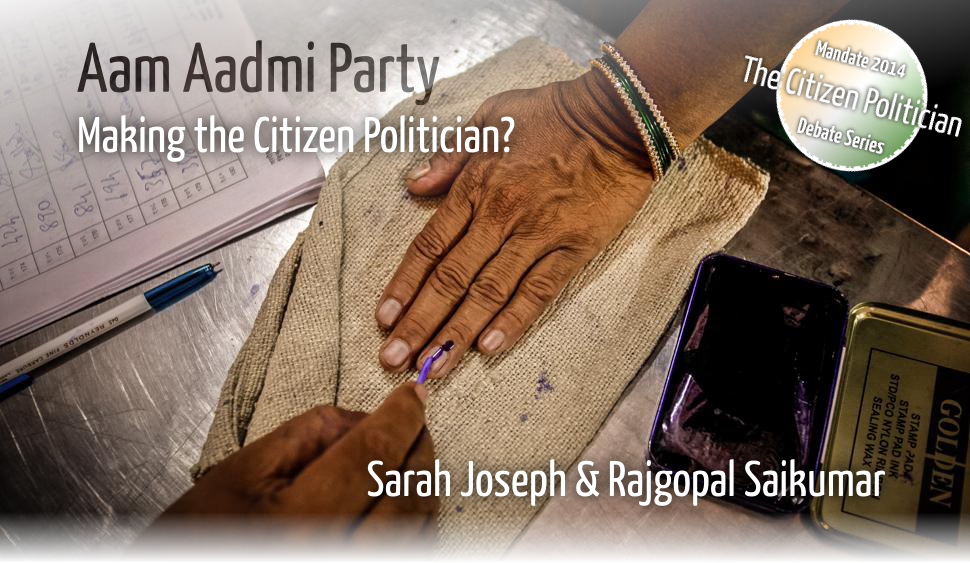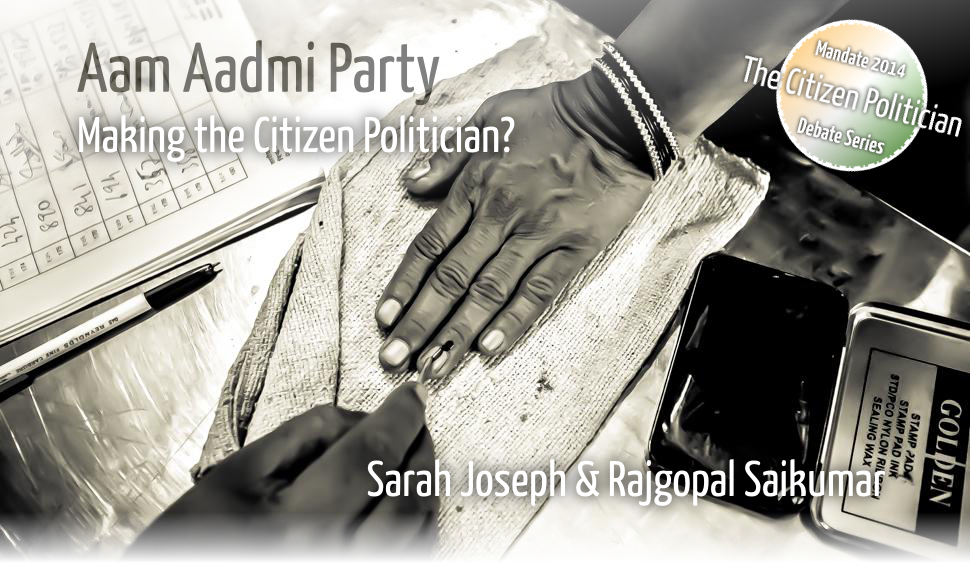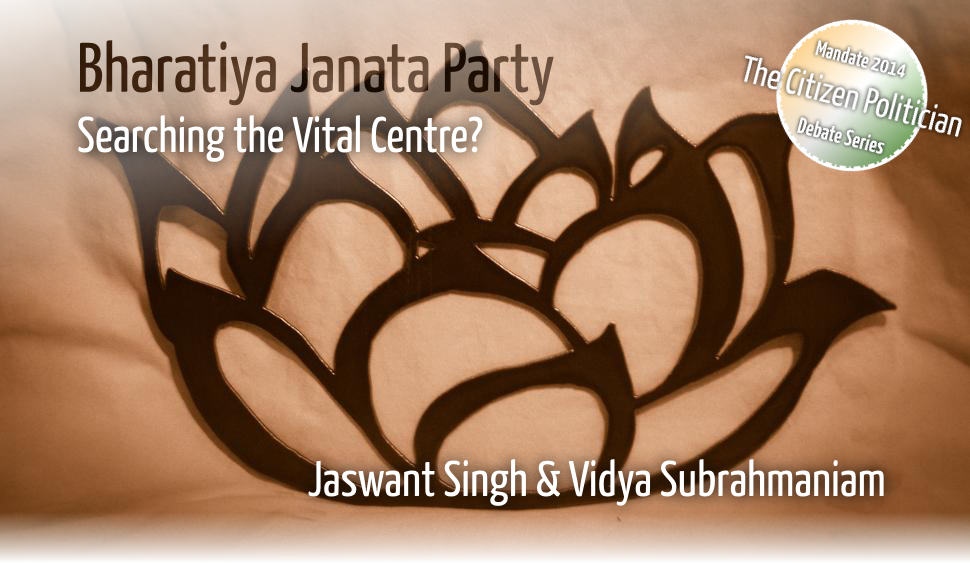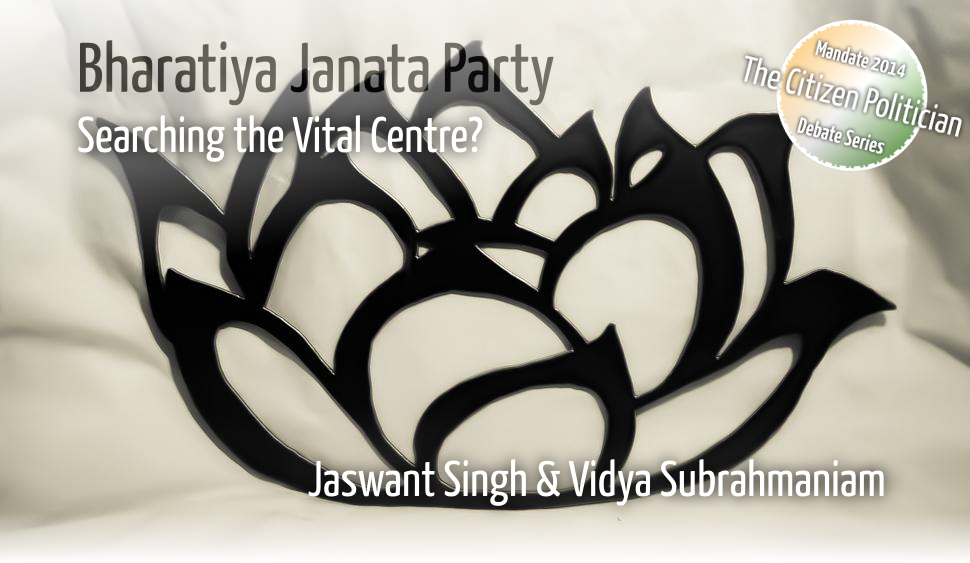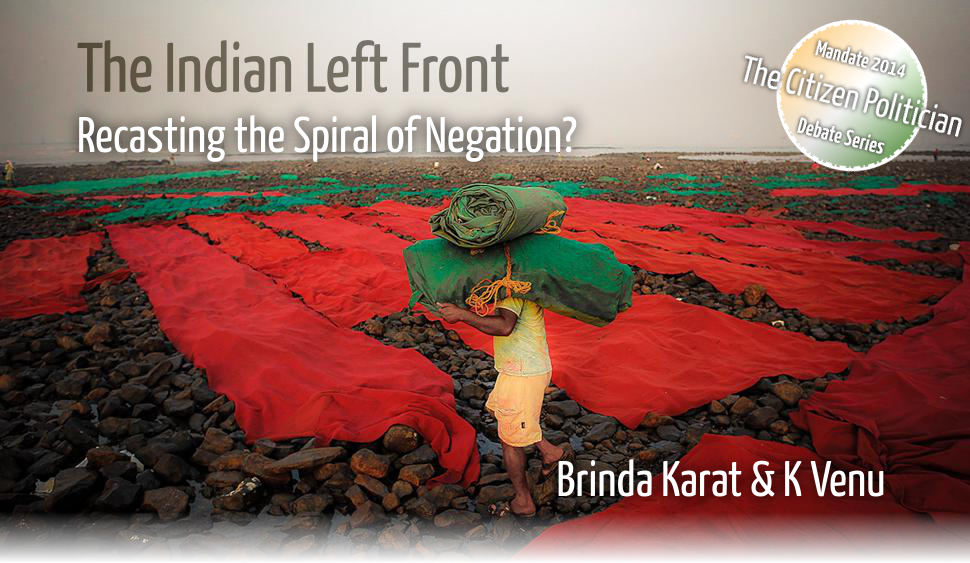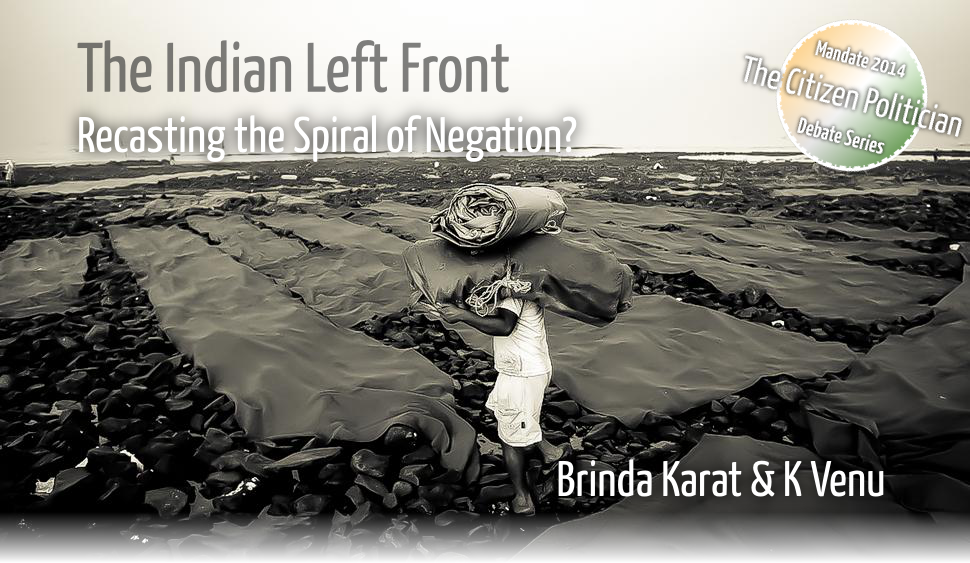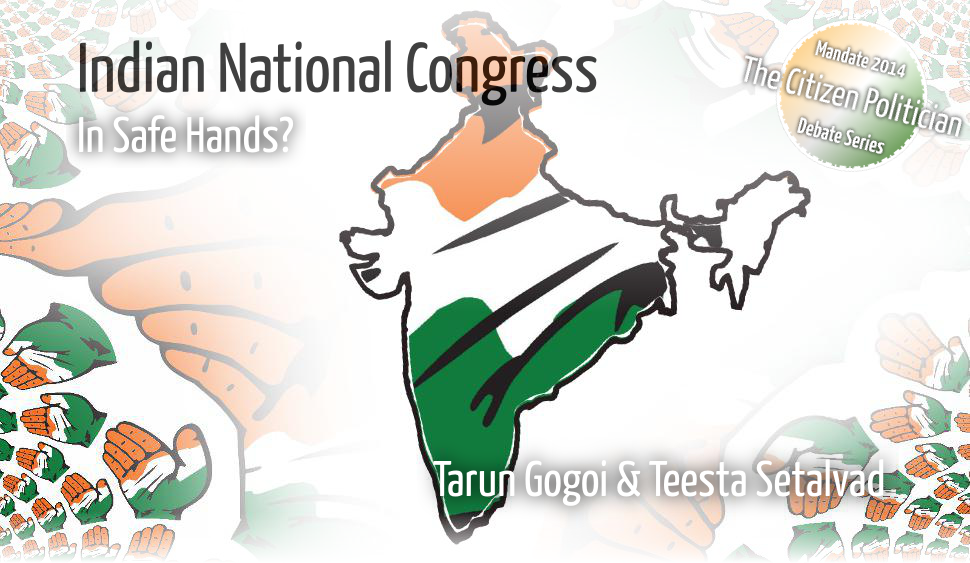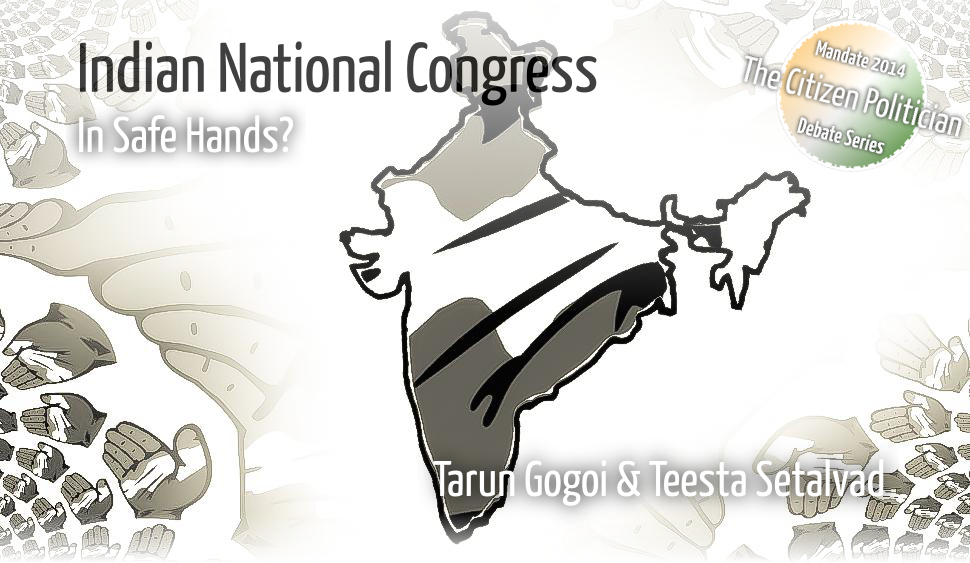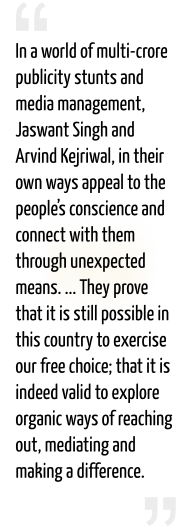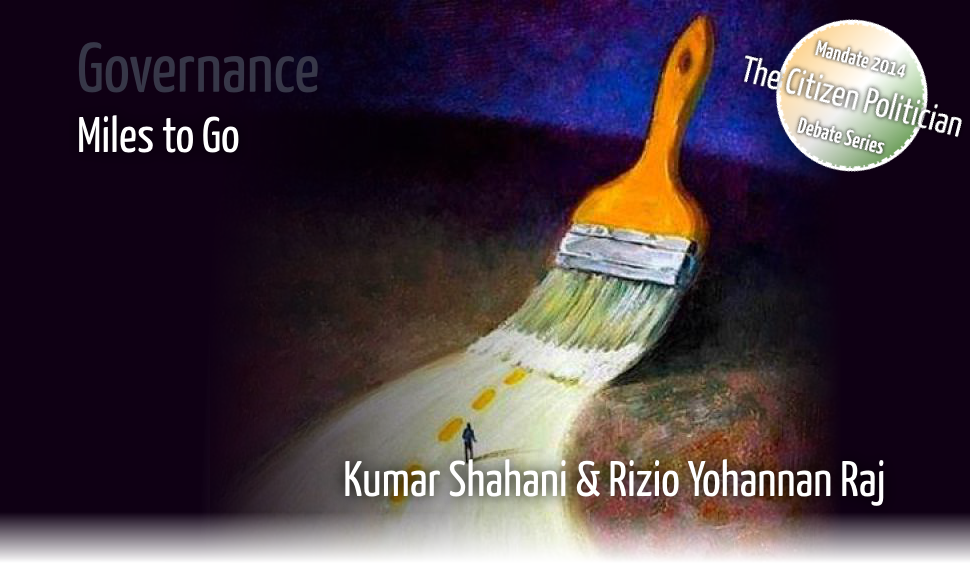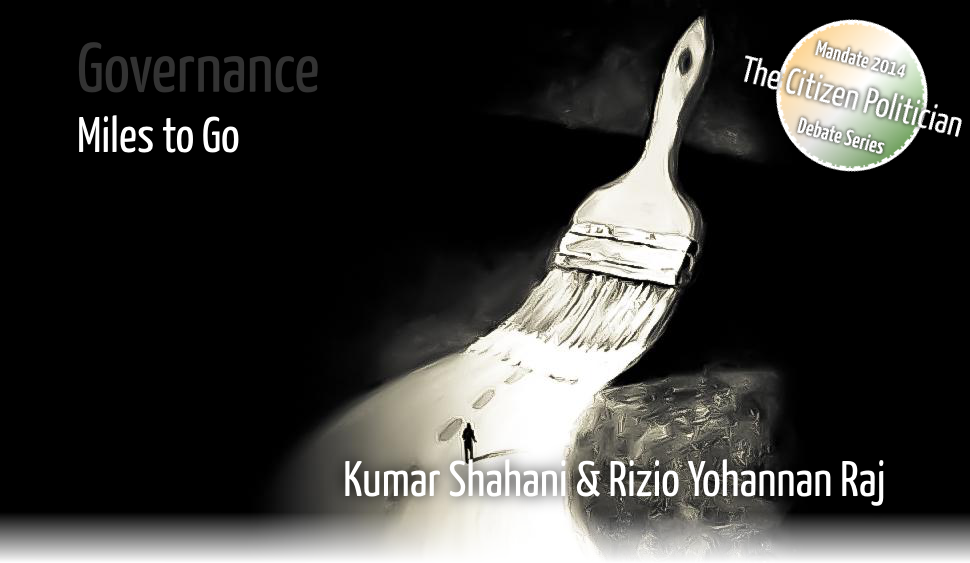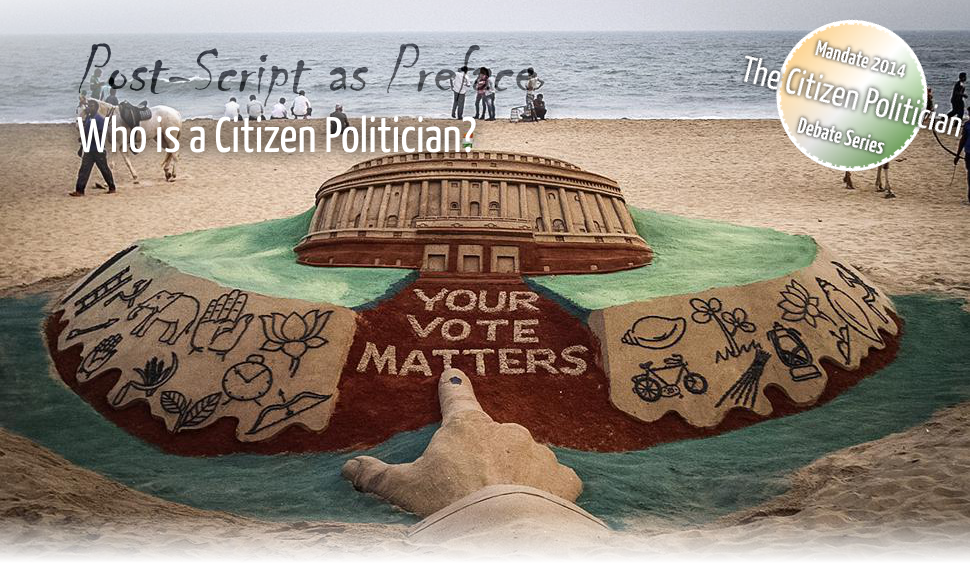

24 April 2014India 2014. Through the election fever, the Citizen Politician arrives in our midst on the heels of shame — a spring of revolution, an “awful daring of a moment’s surrender, which an age of prudence can never retract.” Bearing witness to the astounding churning that follows, it comes home to us: yes, by this, and this only, the human race has truly existed. Undoubtedly, the most enduring revolutions in the country’s political history have indeed been testimonies to the revolutionary potential of the poignant experience of shame. The disgrace you feel in your bones could fling you into a strange hope, and fill you with an abandon that could in turn draw up a march of humanity for the sake of change. Hence did shame connect Gandhi and Ambedkar as citizen politicians, in a way more profound than the separation their individual self-assuredness had imposed on themselves and their times.
Two weeks before the entire Barmer drama unfolded, Jaswant Singh wrote for Inter-actions, representing the BJP on The Citizen Politician Debate Series, a set of exchanges on contemporary Indian politics designed around the parliamentary polls in India. We approached Singh because the history of his public life told us that he would be objective in looking at the aspirations and prospects of the party that he was part of. He did not disappoint us — it is understandable why he would have no place in a scheme where dissent is not quite encouraged.
But choosing the participants turned out to be our most enigmatic concern. With our fundamental purpose of understanding, our initiative to envision, and our eagerness to launch a campaign for democracy, it was not possible for us to promote our contributors’ agendas, if any, for particular movements or non-movements. Yet, the contributing voices had to emerge from the unmanageably scrappy field of India’s contemporary politics and our vastly heterogeneous civil society. We strove to bring in participations that would offer something remarkable, a route or a perspective to make sense of the complex landscape of Indian politics. That would be the singular criterion our scanner would use while looking for contributors. Obviously, Inter-actions could not accommodate the 200 odd political parties in India. Not only was such inclusiveness well nigh impossible on this weekly debate platform, but it also seemed unnecessary vis-à-vis our aim of discerning how the major drifts shaping India’s political terrain influenced the formation of citizen politicians. Our choice to feature four impactful political forces was thus made on the basis of their proclaimed aspiration for extended national-level governance, rather than their representation in the houses. So, this series has come to feature the Indian National Congress, the Bharatiya Janata Party, the Left Front, and the new kid on the block, the Aam Aadmi Party. Having arrived with a bang, the AAP quickly claimed our urgent attention, though it is yet to gain the status of a national party. Apparently, the AAP movement has come about as an aftermath of the shame that has befallen the Indian democracy. So, we invited Sarah Joseph of AAP Kerala, who symbolised for us the newfound party’s best ambitions: intellectual and ideological rigour, decentralised leadership, greater representation of women and minorities in its fold. Joseph held that when most political parties in India had lost the ability to make the people dream and function differently, the AAP was a promise, a meaningful compensation. She pointed out how ironical it was that the main national parties appropriated the AAP rhetoric even as they criticised and, worse, ridiculed it — yes, shamed it. In keeping with the aam aadmi spirit, young polity researcher Rajgopal Saikumar was requested to weigh the AAP experiment and respond to Joseph. Saikumar posited the creation of a certain creative ‘political tension’ as the principal democratic achievement of the AAP movement. We chose to feature the BJP for the second debate in this series. The party seemed to have been desperately searching for a vital centre — for some time, it had been showing signs that it could not survive without the power of the government. The country’s corporate and media worlds willingly accentuated the BJP’s ‘need-for-change’ by propagating it through an astonishingly reconstituted language that reported nearly all contemporary events with reference to the prospective primeministership of Narendra Modi, the present Chief Minister of Gujarat. In this context, Inter-actions sought to understand what core of security/insecurity was driving this blatant display of self-assuredness. Jaswant Singh’s insider-outsider’s voice emphasised the criticality of Indian politicians following the middle path. He reflected on the decadence brought forth by the pretense of passion in our times, and lamented the disgrace of political philosophies serving finite individuals. Senior journalist Vidya Subrahmaniam, who has been following the BJP for a quarter century, responded with her doubts about the BJP ever renouncing its core Hindu nationalist road for a more open and inclusive path. And, the validity of Subrahmaniam’s fears was truly registered on the readers of this debate, when Jaswant Singh was denied the Lok Sabha ticket, and told he would be ‘adjusted’ in the party for mentoring purposes. But the question is, what happens to a mentor where there is none willing to be mentored? Indeed, a shameful prospect! Curiously, a number of senior national leaders were sidelined within the party, even as powerward movement from a specific region was being manifest in Modi’s figuration as the be-all-and-end-all of the BJP. With deep concerns about the Indian democracy being afflicted by such spectres of authoritarianism, naturally our attention turned to the people’s forces hoping to counter these. We looked at the Left Front to see how it might try and recast its spiral of resistance for the sake of emergent India. Brinda Karat responded to our query by highlighting the pre-poll efforts of the Left to form a secular democratic alternative to the communal and corrupt forces in Indian politics. Presenting a different view, erstwhile Marxist-Leninist activist K Venu discussed the enormous challenges faced by the Left: to launch a thorough introspection to transcend the fixities in its own movement; to cast a more dynamic political philosophy and action; to connect its democratic inspirations with an organic political, intellectual and cultural practice relevant to the times. Venu also noted that if the Left had to reinstate the secular democratic balance in the country, perhaps, there was an urgent need to reconsider its relations with the Congress party. Indeed, there is no denying that rampant corruption and disintegration have affected the Indian National Congress, but considering the sheer reach of the party, perhaps no thought towards creating a stable secular front in the country can afford to dismiss it. The direction of such an effort has to be corrective and revivalist, and not merely critical. Nonetheless, we realised it was not easy even to identify a representative contributor from the vastly divided terrain of the Congress. The inaccessibility and unresponsiveness did not even seem to be the party’s special poll-time features. They tended to indicate a retrogressive attitude prevalent in this grand old party, which has now come to resemble an umbrella organisation where few spokespersons can hope to adequately represent it. Our major question was whether this party could reorganise itself, let go of its century-old organisational structure, its bureaucratic functioning and taken-for-granted central leadership. As we reflected on this, a possibility of a reimagining seemed to emerge from the regions where the party was still holding the fort. In the hope that the wobbly central leadership of the INC would open itself to learn from a rather stable regional government, we requested Tarun Gogoi, three-time Chief Minister of Assam, to give his point of view regarding a sustainable model of governance. He bravely defended and projected his government’s engagement in Assam, as an instance of true development vis-à-vis the overtly publicised Gujarat model. We brought a north-eastern point of view into this debate as a representation of how the regional leaderships of the Congress party fare better in governance and public relations than their central counterpart. As it was also important to enquire why the Congress was not able to make any headway in places like Gujarat, we requested civil rights activist Teesta Setalvad, who hails from the western coast of India to respond. She highlighted the profoundly secular role the Congress party must urgently play to stop fascist forces from taking over the nation. Having thus created some room for engaged interactions on our political twilight zone, we were left with a few more questions in addition to the one with which we set out. Would the sustenance of the political tension created by the AAP lead to the making of a nation of citizen politicians? If the BJP’s internal administration has turned so rigid as to either suppress or expel all forms of dissent, would it be able to nurture citizen politicians within its fold? In our globalised, techno-intensive times, if the Left sticks on to its preset ideology and continues waging defensive battles, would it be able to spawn citizen politicians organically connected with their fast-changing contexts? Does the Congress party, having mislaid its ‘moral capital’, still have the resources to give rise to citizen politicians?
Even as these anxiety-inducing questions loom before us, it is becoming clearer to the discerning observer that, in our day, perhaps for the first time since the passing of Mohandas Gandhi, Indian politics is witnessing some intense experiments with the elusive category of truth. At a different level from what Jaswant Singh has initiated in Barmer, Arvind Kejriwal, the leader of the AAP, through a tentative yet earnest movement out of his earlier ‘anarchist’ phase – aimed at an intense recognition and acceptance of his political calling as a satyagrahi in this land of contradictions – is certainly offering us the semblance of a Citizen Politician. During a channel interview, when he was asked how the AAP was going to manage in Varanasi without volunteers as they had in Delhi, in an irresistibly moving gesture, Kejriwal turns to the camera and makes a direct request to the nation, stunning his interviewer: Everyone please drop all the work you are doing for two months, and come to Varanasi. It is ridiculous, but there is also something utterly beautiful about this reaching out, this fervent attempt to connect with his fellow beings in such an unselfconscious way. Now it seems that it is an upright political attitude that makes a Citizen Politician, and not one’s affiliation with any party. In a world of multi-crore publicity stunts and media management, Jaswant Singh and Arvind Kejriwal, in their own ways appeal to the people’s conscience and connect with them through unexpected means. They also try to reach out through the social media, call for help from volunteers, in a way which is very different from how it is planned and worked out in certain other high-power backrooms. And they are warmly responded to. Their winning the elections is secondary; it is their journeys that are making all the difference. They prove that it is still possible in this country to exercise our free choice; that it is indeed valid to explore organic ways of reaching out, mediating and making a difference. It is these examples that encouraged us to conclude this series with an Inter-action on governance. We believe good governance is resulted from the earnest efforts of citizen politicians to lead politics humanward. In order to launch this humanisation process, we must primarily have a way of evaluating both our imaginaries of governance and the power to govern. In a lucid transpolitical exposition, philosopher and filmmaker Kumar Shahani discusses the possibility of evaluating the category of the imaginary. In my response, I reflect on the ways to evaluate power in the political context of India, and look at the role of regional political forces in influencing the balance of power in such a pluralistic space. This last debate in this series hopes to initiate a new discourse on governance, just as this post-script is meant to be a preface to a larger discussion on who a Citizen Politician is, in the space of our complex country, and in these many-splendoured times. The questions have been asked, and they press for answers.
The Editor Images courtesy: Sudarshan Patnaik / Reuters / IB Times |
Share the preface… |
… follow LILA… |
||||

 We have numerous lesser known instances of the seminal role shame has played in shaping our history. But let us cut to a 2014 parliamentary poll campaign in the Barmer constituency in western Rajasthan to witness a quiet contemporary revolution inspired by the unleashing of ‘shame’ into the sanctum of public conscience. Situated along the border between India and Pakistan, Barmer is part of the Great Indian Desert. It is the home constituency of Jaswant Singh, former minister of external affairs, defense and finance in the 1998-2004 NDA governments, and nine-time Member of Parliament. Singh wanted to contest from Barmer in what he termed his last election; apparently, the BJP had repeatedly overlooked his requests to go back home, citing various reasons. It is a famous story now: he was denied his wish to go to Barmer as the BJP decided that he was not ‘winnable’ anymore, and the Barmer ticket was given to a Congress defector who had in fact lost the 2004 elections there. The irony of the situation is as apparent as Singh’s awing decision to go Independent at his seniority, severing ties with the party that he had co-founded, asserting that the party had lost touch with reality. Reporting one of Singh’s campaigns in Barmer where the huge crowd made up of shop owners, college students, unemployed youth, even Shiv Sena members, raise slogans against the BJP’s act of humiliating a generation that commanded respect, a newspaper says: Singh quietly fights back, and the crowd roars — this campaign is a journey, rather than a destination. And, this election season Barmer tells us how ‘shame’ certainly breeds revolution, and how it could lead to the making of a citizen politician.
We have numerous lesser known instances of the seminal role shame has played in shaping our history. But let us cut to a 2014 parliamentary poll campaign in the Barmer constituency in western Rajasthan to witness a quiet contemporary revolution inspired by the unleashing of ‘shame’ into the sanctum of public conscience. Situated along the border between India and Pakistan, Barmer is part of the Great Indian Desert. It is the home constituency of Jaswant Singh, former minister of external affairs, defense and finance in the 1998-2004 NDA governments, and nine-time Member of Parliament. Singh wanted to contest from Barmer in what he termed his last election; apparently, the BJP had repeatedly overlooked his requests to go back home, citing various reasons. It is a famous story now: he was denied his wish to go to Barmer as the BJP decided that he was not ‘winnable’ anymore, and the Barmer ticket was given to a Congress defector who had in fact lost the 2004 elections there. The irony of the situation is as apparent as Singh’s awing decision to go Independent at his seniority, severing ties with the party that he had co-founded, asserting that the party had lost touch with reality. Reporting one of Singh’s campaigns in Barmer where the huge crowd made up of shop owners, college students, unemployed youth, even Shiv Sena members, raise slogans against the BJP’s act of humiliating a generation that commanded respect, a newspaper says: Singh quietly fights back, and the crowd roars — this campaign is a journey, rather than a destination. And, this election season Barmer tells us how ‘shame’ certainly breeds revolution, and how it could lead to the making of a citizen politician.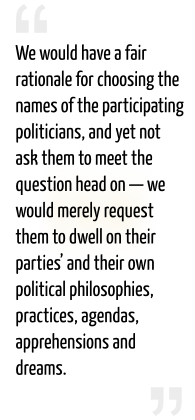 Who is a Citizen Politician? Indeed, we were tuned in to the problems involved in posing this question directly to politicians working within party systems. The spectrum of dangers ranged from possible oversimplification due to attempts at aligning one’s opinion with the party’s, to the likelihood of affected expression caused by self-indulgence, cynicism, polarised thought or limited vision. So, we would have a fair rationale for choosing the names of the participating politicians, and yet not ask them to meet the question head on — we would merely request them to dwell on their parties’ and their own political philosophies, practices, agendas, apprehensions and dreams. Our civil society respondents, on the other hand, would keep the picture of the Citizen Politician in mind while weighing the issues raised by the political actors and their organisations. That was decided.
Who is a Citizen Politician? Indeed, we were tuned in to the problems involved in posing this question directly to politicians working within party systems. The spectrum of dangers ranged from possible oversimplification due to attempts at aligning one’s opinion with the party’s, to the likelihood of affected expression caused by self-indulgence, cynicism, polarised thought or limited vision. So, we would have a fair rationale for choosing the names of the participating politicians, and yet not ask them to meet the question head on — we would merely request them to dwell on their parties’ and their own political philosophies, practices, agendas, apprehensions and dreams. Our civil society respondents, on the other hand, would keep the picture of the Citizen Politician in mind while weighing the issues raised by the political actors and their organisations. That was decided.